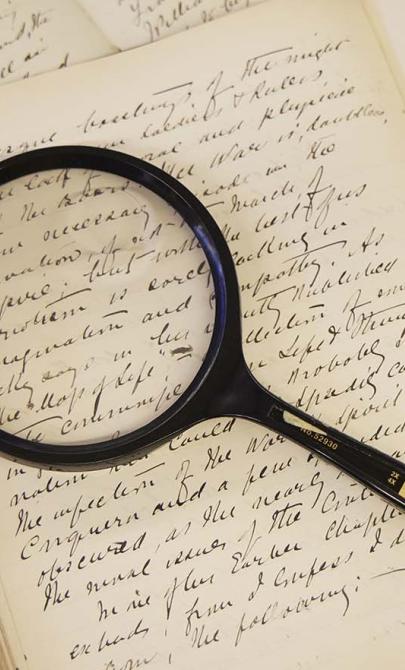Science and strategy: The Enlightenment
Topics in this module
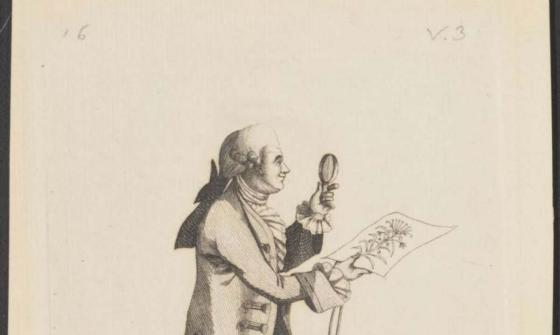
The botanic Macaroni, 1772, nla.gov.au/nla.obj-135987238
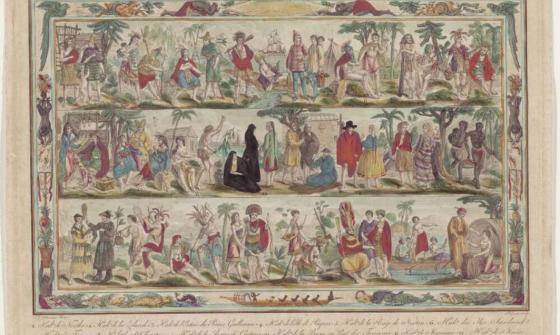
Antoine Phelippeaux and Jacques Grasset de Saint-Sauveur, Tableau des decouvertes du Capne. Cook & de la Perouse, 1798, nla.gov.au/nla.obj-135227083
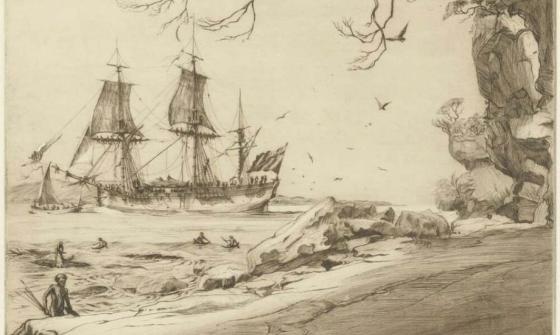
Geoffrey Chapman Ingleton, H.M. Bark Endeavour, 1937, nla.gov.au/nla.obj-135348965
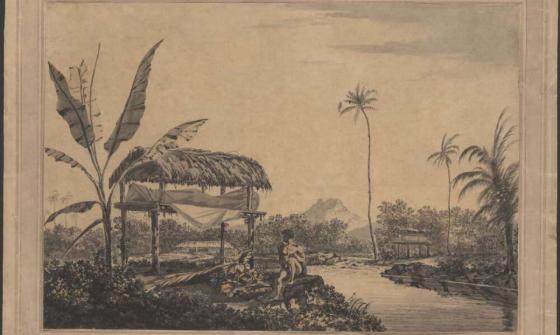
William Hodges, Otaheite, 1773, nla.gov.au/nla.obj-135152176
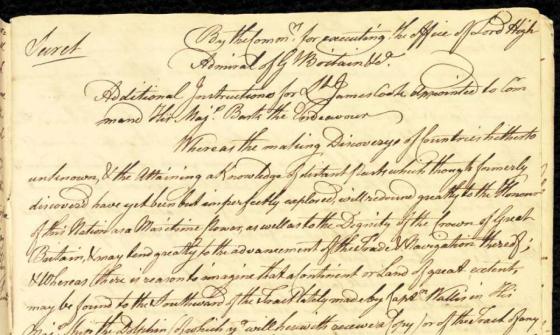
James Cook and Great Britain Admiralty, Cook's voyage 1768-71, 1768, nla.gov.au/nla.obj-229102048
Learning activities
These activities explore Enlightenment ideals, the impact of colonial practices, and how different European powers shaped global history—including what it might have meant for Australia.
Activity 1: Enlightenment ideals vs colonial practice
Focus question: ‘The tenets of the Enlightenment sit at odds with the concept of colonial rule and the French notion of the mission civilisatrice.’ Do you agree or disagree?
Review the key ideas of the Enlightenment, including:
- social equality
- individual rights and freedoms
- challenges to the authority of religion and monarchy
- the push towards more democratic forms of government
Now consider the actions of European colonial powers during the same period:
- colonisation of large parts of the world
- assimilationist and often violent approaches to Indigenous peoples
- belief in a ‘civilising mission’ (such as the French mission civilisatrice)
Write a short response (200–300 words) explaining whether you agree or disagree with the statement. Support your argument with examples from your knowledge and research.
Activity 2: Comparing old and new maps
Focus question: How accurate were 18th-century maps compared to modern satellite maps?
- Choose a region explored and mapped in the 18th century. Find a historical map created by an explorer from that time.
- Open a modern satellite map of the same region using Google Maps, Google Earth or Apple Maps.
- If possible, overlay the old and new maps using Photoshop, Google Earth or similar software.
In small groups or individually, discuss or write about:
- Which features were recorded accurately?
- Which parts were exaggerated, missing or misrepresented?
- What do these differences reveal about the knowledge and motivations of 18th-century explorers?
Activity 3: Comparing colonial approaches
Focus question: How did colonial strategies differ between Britain, France, Spain and Portugal—and how might this have affected Australia's history?
Choose two or more colonial powers (for example: Britain, France, Spain, Portugal). Research how they governed colonies in regions such as:
- Mexico (Spain)
- Brazil (Portugal)
- West or North Africa (France or Britain)
Consider aspects such as:
- treatment of Indigenous peoples
- economic goals (trade, resource extraction)
- religious and cultural assimilation
- use of violence or diplomacy
Reflect on Australia's history. If a different colonial power (France or Spain) had claimed sovereignty instead of Britain, how might things have unfolded differently?
Present your findings as a short written comparison, a visual chart, or a class presentation.
Glossary
This glossary includes words highlighted in bold throughout the module. Unless otherwise indicated, definitions and glossary entries come from The Maquarie Dictionary.
Definitions have been selected for best fit to context, some entries have multiple meanings in different applications.
The Admiralty
The officials or the department of state having charge of naval affairs.
Arable
Capable, without much modification, of producing crops by means of plowing
Astronomer Royal
The title Astronomer Royal is an honour awarded to an eminent astronomer. He, or she, is expected to advise the Queen on astronomical matters. Because of astronomy's role in navigation for this sea-faring nation, their work was often entwined with the stories of Britain's great explorers such as Capt. James Cook and of course the story of longitude and Harrison's Clocks.
Information from Royal Museums Greenwhich
Botany
The science of plants; the branch of biology that deals with plant life.
Bureaucracy
- Government by administrative officials organised into departments, bureaus, etc.
- Excessive red tape and unnecessary official procedures in any system of government or administration.
Canton System
The Canton system was a trading pattern that developed between Chinese and foreign merchants, especially British, in the South China trading city of Guangzhou (Canton) from the 17th to the 19th century. The major characteristics of the system developed between 1760 and 1842, when all foreign trade coming into China was confined to Canton and the foreign traders entering the city were subject to a series of regulations by the Chinese government.
Information from: Encyclopaedia Britannica
Capital
- The wealth, whether in money or property, owned or employed in business by an individual, firm, etc.
- An accumulated stock of such wealth.
- Any form of wealth employed or capable of being employed in the production of more wealth.
Cartography
The production of maps, including construction of projections, design, compilation, drafting, and reproduction.
Ceding
To yield or formally resign and surrender to another; make over, as by treaty: to cede territory.
Chartering
- A written document, granted by a sovereign or legislature giving privileges, rights, the benefit of a new invention, a peerage, etc.
- A written grant by a sovereign power creating or incorporating a borough, university, company or a corporation, as the royal charters granted to establish British colonies in America.
- Founded, granted, or protected by a charter.
Circumnavigation
To sail round; make the circuit of by navigation: he circumnavigated the world.
Civil disobedience
A refusal, usually on political grounds, to obey laws, pay taxes, etc.
Cohong
Cohong, Chinese (Pinyin) gonghang or (Wade-Giles romanization) kung-hang, also called hong or cong-hong, the guild of Chinese merchants authorized by the central government to trade with Western merchants at Guangzhou (Canton) prior to the first Opium War (1839–42).
Information from: Encyclopaedia Britannica
Conchology
The branch of zoology dealing with the shells of molluscs.
Confucianism
A system of ethics based on the teachings of the Chinese philosopher Confucius who stressed treating others as one would wish to be treated, loyalty, intelligence, and the fullest development of the individual in the five chief relationships of life: ruler and subject, father and son, elder and younger brother, husband and wife, friend and friend.
Convened
To come together; assemble, usually for some public purpose.
Degradation
- The act of degrading.
- The state of being degraded.
- Physical Geography the general lowering of the surface of the land by erosive processes, especially by the removal of material through erosion.
- Chemistry the breakdown of a complex compound into simple ones.
Edicts
- A decree issued by a sovereign or other authority.
- Any authoritative proclamation or command.
Epidemics
Affecting at the same time a large number of people in a locality, and spreading from person to person, as a disease not permanently prevalent there.
Equate
- To state the equality of or between; put in the form of an equation.
- To regard, treat, or represent as equivalent.
Eschatocol
The final section of a document, which may include a formulaic sentence of appreciation, and the attestation of those responsible for the document (the author, the writer, or the countersigner, and any witnesses to the enactment or the subscription).
Example of formulaic appreciation include 'sincerely', 'your humble servant', or 'yours truly'. The attestation is the most essential part of the eschatocol.
Information from Society of American Archivists
Free trade agreement
- Trade between different countries, free from governmental restrictions, such as protective duties, import quotas, etc.
- The system, principles, or maintenance of such trade.
Hydrology
The science dealing with water on the land, or under the earth's surface, its properties, laws, geographical distribution, etc.
Ichthyology
The branch of zoology that deals with fishes.
Intervening
To come or be between, as in place, time, or a series.
Lucrative
Profitable
Manchu
One of a Mongolian people inhabiting Manchuria, who conquered China in the 17th century
Maritime
- connected with the sea in relation to navigation, shipping, etc.: maritime law.
- of or relating to the sea.
Meteorological
Relating to meteorology, or to phenomena of the atmosphere or weather.
Mission Civilsatrice
(French) Civilising Mission
As the primary rationalisation for colonialism, the "civilizing mission" signified France's attempt to convert its colonial subjects into French people. Whereas the British tended to reject the notion that an Indian, for example, might become British. There was also a moral component to the civilizing mission, in that some French held that it was their duty as a more enlightened people to elevate those ignorant to the ways of the Western world.
Information sourced from Encyclopedia.com
Edited for clarity and length
Morbidity
The proportion of sickness in a locality:
Mortality
The relative frequency of death, or death rate, as in a district or community.
Myriad
An indefinitely great number: a myriad of stars.
Oceanography
The branch of physical geography dealing with the ocean.
Parallax
- A misalignment in the comparison of two locations due to the relative position of the observer.
- Heliocentric parallax: the apparent displacement of a heavenly body due to its being observed from the earth instead of from the sun.
Pardoned
Forgiveness of an offence or offender.
Patron
- Someone who supports with their patronage a shop, hotel, or the like.
- A protector or supporter, as of a person, cause, institution, art, or enterprise.
Plantago Media, Hoary Plantain
Plantago media, known as the hoary plantain, is a species of flowering plant in the plantain family Plantaginaceae. It is native to central and western Europe, including Great Britain and introduced to parts of the north-east United States
Information from Wikipedia
Postulated
To assume without proof, or as self-evident; take for granted.
Preamble
- An introductory statement; a preface; an introduction.
- The introductory part of a statute, deed, or the like, stating the reasons and intent of what follows.
Realm
A royal domain; kingdom: the realm of England.
Relinquished
- To renounce or surrender (a possession, right, etc.).
- To give up; put aside or desist from: to relinquish a plan.
- To let go: to relinquish one's hold.
Revolt
To break away from or rise against constituted authority, as by open rebellion; cast off allegiance or subjection to those in authority; rebel; mutiny.
Scurvy
A disease marked by swollen and bleeding gums, livid spots on the skin, prostration, etc., due to a diet lacking in vitamin C.
Subordination
- Placed in or belonging to a lower order or rank.
- Of lesser importance; secondary.
- Subject to or under the authority of a superior.
- Subservient.
- Dependent.
Taxonomy
- Classification, especially in relation to its principles or laws.
- That department of science, or of a particular science, which deals with classification.
Zoology
The systematic study of animals or the animal kingdom.
Curriculum links
This resource is aligned with the Australian Curriculum: Modern History for Senior Secondary students.
- The main factors contributing to the emergence of the Enlightenment, including: the decline in the power of both the Church and Absolute Monarchy; the Scientific Revolution; and the spread of Enlightenment ideas across Europe (ACHMH016)
- The motivation and role of individuals in the development of the Enlightenment, and conflicting ideas, with particular reference to Locke, Voltaire, Mill and Rousseau (ACHMH017)
- The key ideas that emerged from the Enlightenment, including: the belief in reason and opposition to superstition; the belief in the importance of free expression; the belief in the value of learning and education as reflected in the rise of universities and academies; and support for humanitarianism (ACHMH018)
- The significant changes that occurred as a result of the Enlightenment, for example: movements for social and political reform; the rise of enlightened monarchies; increased interest in technological change; and belief in equal rights (ACHMH019)
- The experiences and responses to the Enlightenment - for example, those of scientists, intellectuals, monarchs, church leaders and revolutionary leaders (ACHMH020)
- The significance and impact of the Enlightenment beyond Europe in the 19th century (ACHMH021)
- The main causes of the American Revolution, including the significance of the Seven Years War (1756-1763), the influence of republican ideology, the imposition of taxes and repressive acts, and the lack of American representation in British government; and the campaigns that were fought to achieve independence (for example, Saratoga and Philadelphia) (ACHMH022)
- The key ideas of liberalism, democracy and republicanism that emerged from the American Revolution as illustrated by the 1776 Declaration of Independence; the creation of a national constitution and Bill of Rights; and the establishment of constitutional government (ACHMH024)
- The significant political, social and constitutional changes brought about by the American Revolution - for example: the separation of powers; treatment of the opponents of the new republic; losses during the war; and the emergence of the Federal system (ACHMH026)
- The significance of the American Revolution into the 19th century: for example its impact on other revolutionary movements; and the implications for Australia of the cessation of British convict transportation to the United States (ACHMH027)


